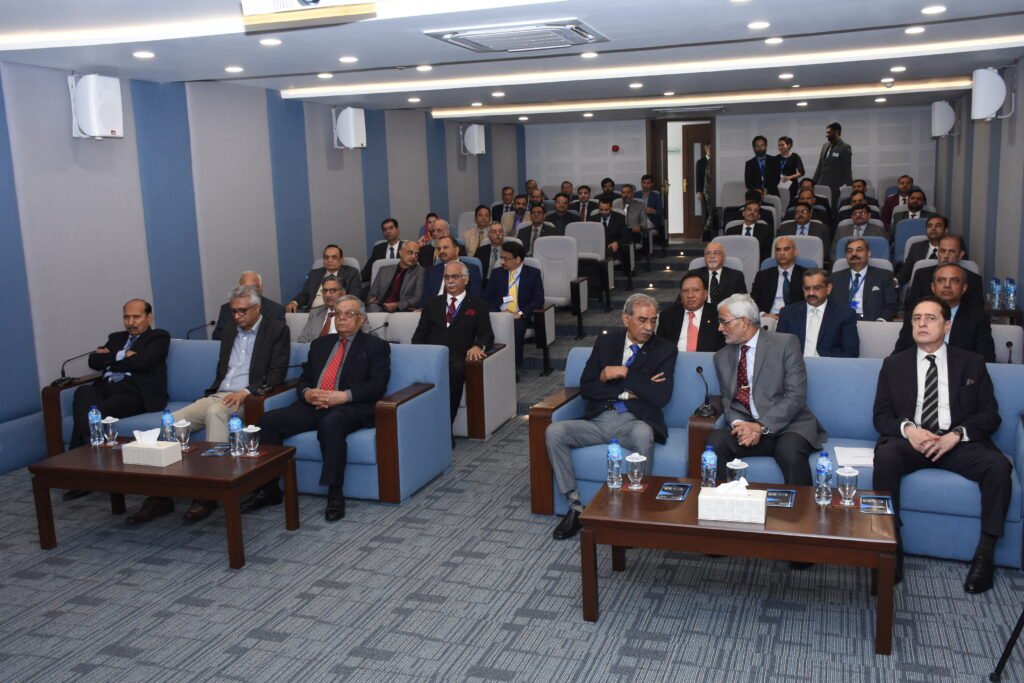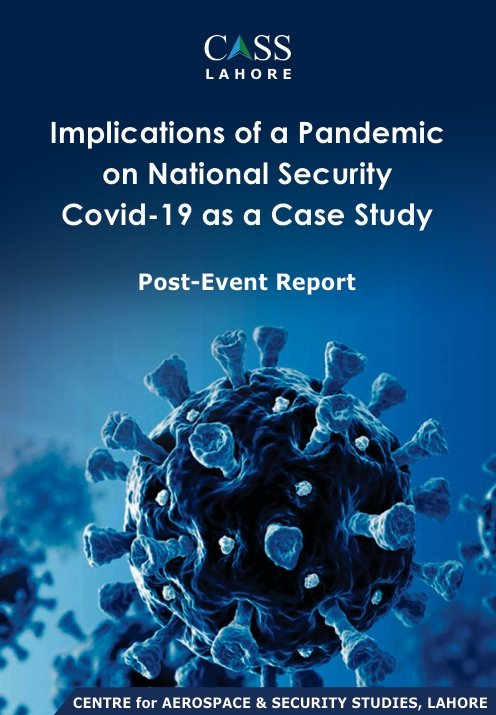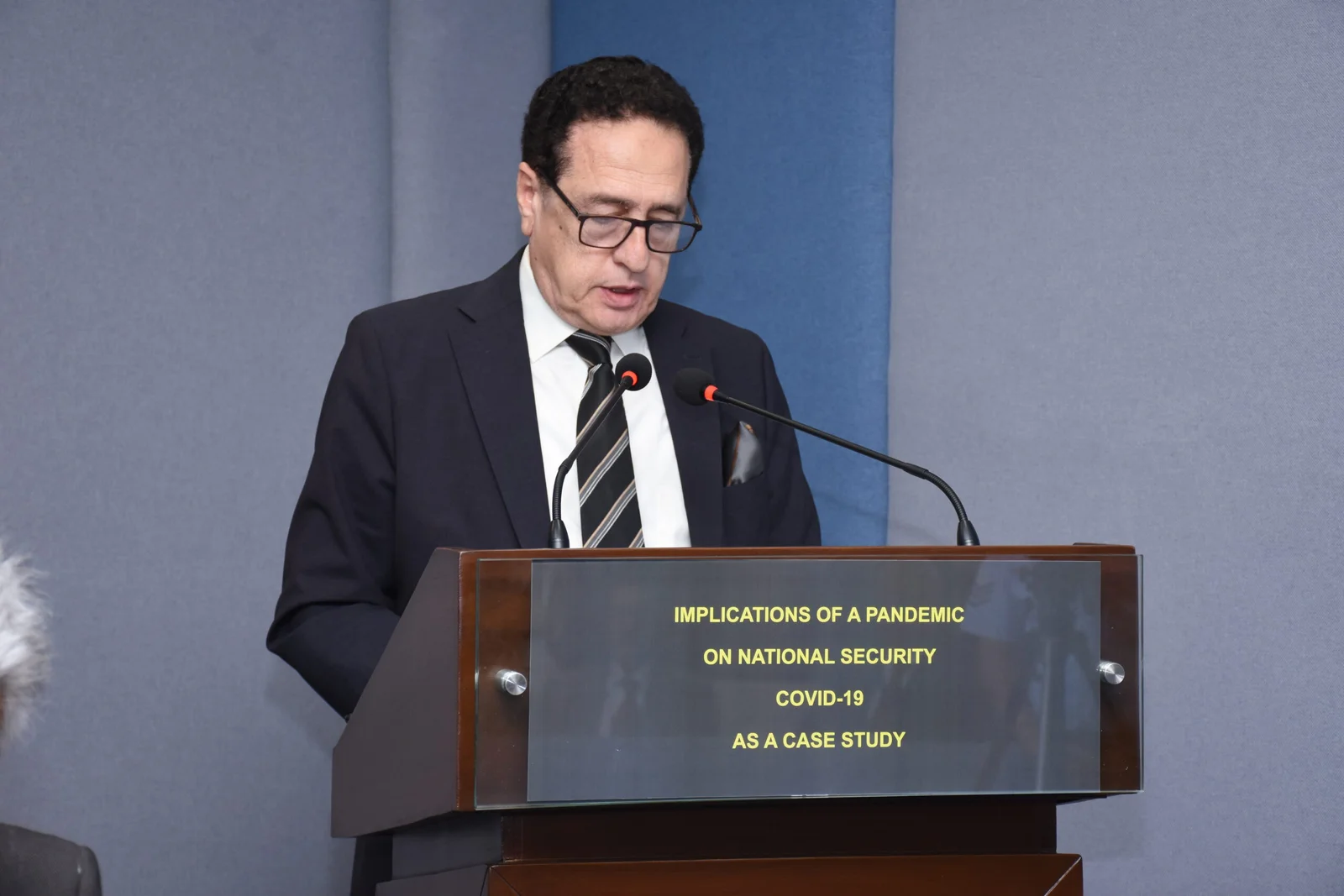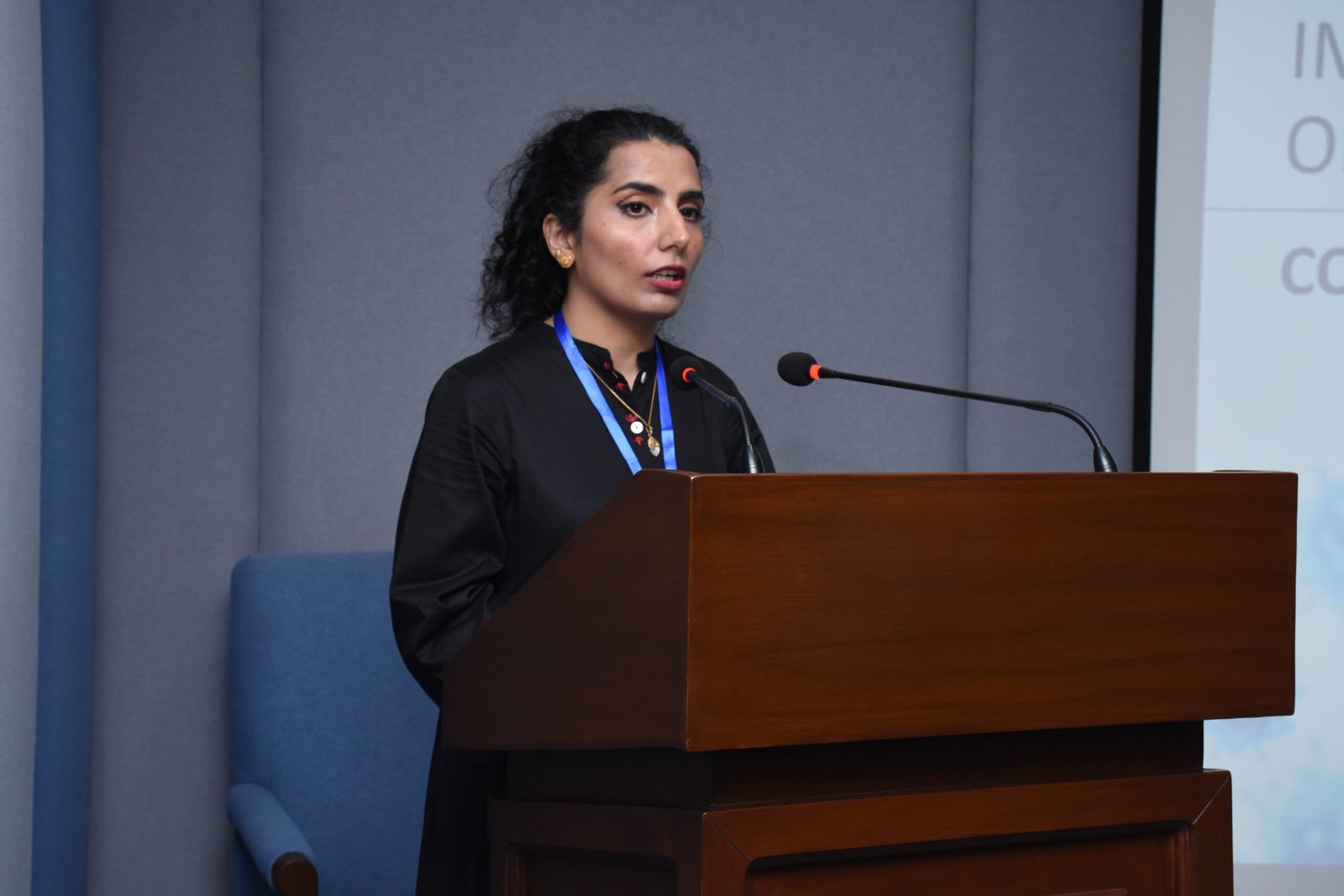
Seminar
Implication of a Pandemic On National Security: Covid 19 as a Case Study
About The Event
The COVID-19 pandemic has had a profound impact on human security. The most obvious is the cost to human health: 755 million confirmed cases, and 6.8 million confirmed deaths. COVID-19 took place in a highly globalised and interdependent world with complex supply chains, an incredibly high volume of travel, deeply interlinked economies, and escalating superpower competition. In an incredibly short amount of time, COVID-19 disrupted the national security calculus in unprecedented ways.
The repercussions of the pandemic have been severe and are still being felt: a projected cumulative loss of about US $13.8 trillion to the global economy through 2024, supply chain disruptions, job losses triggering recessions, and social unrest fuelling social upheaval. The pandemic caused political, economic, health, and social crises at the global level. It forced nations to re-evaluate concepts of national security and recalibrate to factor in large-scale, non-traditional threats of a biological nature. COVID-19 also brought focus to the empirical threat of the dual-use advancements in biotechnology, gene editing, and DNA modification techniques to create pathogens (viruses/bacteria) with enhanced killing characteristics that can be called next-generation bioweapons.
In Pakistan, there were around 1.5 million confirmed COVID-19 cases and 30,640 deaths. The socioeconomic impact of COVID-19 has been severe, causing a contraction in GDP and putting serious pressure on the country’s threadbare health infrastructure. With the world’s fifth-largest population, incredibly high urban population density, and a healthcare system already under great strain, Pakistan faced a monumental crisis with multi-layered implications, particularly on the healthcare and the economic front.
With this contextual backdrop, a seminar at CASS, Lahore, was conducted on 21 March 2023 on the topic of “The Impact of a Pandemic on National Security: Taking COVID-19 as a Case Study”. The topic was selected to examine the multi-faceted impact of COVID-19 on national security, to analyse the constraints of past responses, and to brainstorm future strategies to manage long-term risks to national security. The other intent was to explore the possible development of “Next Generation Bioweapons” in light of advancements in biotechnology and genetic studies.
The Seminar was chaired by Air Marshal Asim Suleiman, President CASS Lahore, and was moderated by researcher Sabina Babar. The four seminar speakers included two eminent guest speakers and two in-house speakers from CASS, Lahore.
- Dr Faisal Sultan, CEO of Shaukat Khanum Memorial Cancer Hospital
- Prof Col Dr Muhammad Ashraf Chaudhry, HOD of Community Medicine at CMH Lahore Medical College
- AVM M Z Faisal (Retd), Director of Warfare and Aerospace
- Dr Ghulam Mohey-ud-din, Director of Economic Affairs.

Key Takeaways
Spread of COVID-19
- COVID-19 was declared a health emergency in January 2020 and an epidemic in March 2020, and is still a threat as an endemic. From Wuhan to 180 countries, it took less than a hundred days to spread.
- COVID-19 has several characteristics of an ideal biological weapon, including a high transmission rate, long incubation period, airborne transmission, and significant death rate.
- No convincing scientific evidence suggests that COVID-19 was created as a bioweapon. If it was, then it raises serious questions such as who invented it, who was the target, and what were the objectives.
Pakistan’s Response
- The National Command Operations Centre (NCOC), which spearheaded the response campaign against COVID-19, has been replaced by the Centre for Communicable Diseases (CDC), established in the National Institute of Health.
- Devolved federal structures create challenges for a central, coherent, and coordinated response in face of a pandemic.
- The balance between life and livelihood demands targeted Non- pharmaceutical Interventions (NPIs) like smart lockdowns.
A Blow to Humanity and Healthcare Systems
- There were 757 million confirmed cases of COVID-19 and 6.85 million deaths globally.
- The global life expectancy, post- COVID-19, has reduced by two years; from 73 to 71. It fell the most in Europe and America.
- Approximately 5 percent of COVID-19 patients suffer from complications like multiple organ failure, which requires ventilation support.
- The percentage of GDP allocated to the health sector in Pakistan was just one percent in 2019 (Rs. 372 billion approximately) to 2.2 percent of GDP in 2022 (Rs. 913 billion approximately) which is considerably less than the 5 percent requirement by WHO.
Challenges to the Economy
- The year 2020 saw a global debt surge of 28 percent, the highest in the last 50 years. An estimated 97 million people were relegated to living on less than US $1.90 a day.
- The pandemic resulted in 8.8 percent decline in working hours globally which equals 255 million jobs. Most of the lost jobs were in the low-wage cadre, resulting in further widening of the socio- economic gap between rich and poor.
- As per Global Peace Index 2021, out of 163 countries, 105 recorded an increase in military spending, highlighting the emphasis on traditional security and possible future conflicts even when human security was under stress.
- The restrictions on the movement of goods and services resulted in a 5.3 percent decline in global merchandise trade which is the largest drop since the Great Depression.
- In 2020, community mobility declined by more than 70 percent, and global passenger traffic declined by 66 percent resulting in a revenue loss of US 116 billion.
Impact on National Security
- Pandemics are low-probability, high-consequence events that can concurrently target both traditional and non-traditional security paradigms.
- National security is mostly seen from the perspective of securing borders. COVID-19 has incorporated non-traditional security threats to its understanding such as pandemics, natural disasters, and climate change.
- COVID-19 has highlighted the challenges of global interdependence and has emphasised the need for a state to be as self-reliant in its resources as possible to protect the vitals of its national security.
- The key negative trend in 2020 was the global rise in civil unrest which rose globally by 10 percent and created a challenge for internal security.
Threat of Next-Generation Bioweapons
- “Next Generation Bioweapons” are traditional biological agents genetically modified for increased survivability, infectivity, rapid spread, and resistance to drugs.
- The study of genes and molecular biology can one day develop viruses that can target specific ethnic groups, particular crops, food, and some specialist viruses can even destroy infrastructure and equipment.
- The bioweapon threat has been raised by the Americans in the recently published “US National Biodefence Strategy” of October 2022, and warns, “Nation-states and terrorist groups have found value in pursuing biological weapons.”
- Reportedly, many advanced nations have the dual-use potential to move away from vaccine production to bioweapon production in a matter oBf idoawyes.apons, Pandemics, and
Future Wars
- The frequency of epidemics / pandemics seems to have increased. For instance, AIDS in 1981, SARS in 2002-03, Swine Flu in 2009-10, MERS Middle East Respiratory Syndrome) in 2015, and COVID-19 in 2019.
- A pandemic can have three significant impacts on the military; significant numbers ill, heavy engagement in civil aid duties, and dip in the defence budget.
- The use of bioweapons in different wars is as old as 200 BC but there is no evidence to suggest that these had any significant impact on the outcome of wars. These are not classic battlefield weapons, but they can slow down the tempo of operations.
- he next generation of bioweapons with designated targets may become a preferred tool of indirect wars to target the enemy’s economy and its population.
Policy Considerations
ADMINISTRATIVE
Strengthen the Biological Weapon Convention
- The 1972 Biological Weapon Convention needs to be strengthened to an appropriate level in areas of transparency, verification, and against the expected misuse of biotechnology.
Formulate National Biodefence Strategy
- Pakistan may consider formulating a national biodefence strategy like the Americans. It should be a single document along the lines of a war plan which should orchestrate a full range of actions, and activities across the entire spectrum of biological threats.
Review the National Disaster Management Authority (NDMA) Act
- The review should focus on strengthening the legal framework of the NDMA, clarifying its mandate and scope, and establishing clear lines of authority and accountability for the efficient mobilisation of resources to
stakeholders.
ECONOMIC
Economic Strength
- A 15-year economic growth game plan finalised by specialist economists, approved with political party consensus, and protected by constitutional measures should be put in effect under a strict watchdog.
Economic Policy Responses
- Fiscal policy should have enough space for an economic stimulus package. The monetary policy should ensure adequate liquidity in the financial system for maintaining financial stability during pandemics.
Enhance Social Protection Systems
- Pakistan should prioritise building robust social protection systems, such as cash transfers, food subsidies, and unemployment benefits.
HEALTHCARE
Institutionalise the Mechanisms of the Epidemic/Disease Control Centres
- The resourcing and staffing of the newly formed centres, including the Centre for Disease Control (CDC), the Health Data Centre, and the National Vaccine Centre should be prioritised to deal with future health emergencies/pandemics.
Reform the Drug Regulatory Authority
- The reform areas should include governance, pricing of drugs, and stockpiling of relevant medications. As against a typical bureaucratic oversight, a professional board of medical, pharmaceutical, and diagnostic experts should be constituted to oversee the operations of the Drug
- Regulatory Authority of Pakistan (DRAP).
Upgrade the Data Flow Systems in Pakistan
- Establish a streamlined mechanism to receive and aggregate data, particularly in the areas of disease detection and capacity monitoring of health facilities. Integrate the PCR test results into the polio dashboard.
Reduce Reliance on External Sources for Vaccines
- Enhance domestic vaccine production by incentivising private pharmaceutical companies to manufacture domestically. Promote innovation and research in the field of vaccines by bringing academia and industry together.
Capacity Building of the Public Health Care System
- As and when the fiscal space allows, government to allot four percent of the GDP to the public health system as against one percent in 2019 and 2.2 percent in 2022.
Yearly Mock Drill
- To enhance our speedy response to health emergencies/epidemics, a yearly mock drill is recommended to test and improve our systems.

Post Event Report
A comprehensive report capturing expert analyses, strategic insights, key recommendations, media coverage, and event highlights.
Guest Speakers

Air Vice Marshal M Z Faisal (Retd)
Director, Warfare and Aerospace CASS Lahore
Dr Muhammad Ashraf Chaudhry
Professor and HOD, Community Medicine CMH Lahore Medical College


Dr Faisal Sultan
CEO, Shaukat Khanum Memorial Cancer Hospital and Research Centre
Dr Ghulam Mohey-ud-din
Director, Economic Affairs CASS Lahore


Event Chair
Air Marshal Asim Suleiman (Retd)
President CASS, Lahore

Event Coordinator
Air Vice Marshal M Z Faisal (Retd)
Director, Warfare and Aerospace CASS Lahore

Master of The Ceremony
Sabina Babar
Researcher, CASS Lahore
CASS LAhore

The Centre for Aerospace & Security Studies (CASS) was established in July 2021 to inform policymakers and the public about issues related to aerospace and security from an independent, non-partisan and future-centric analytical lens.
CASS Newsletter

@2025 – All Right Reserved with CASS Lahore.
- Home
- About Us
- Research Domains
- Publications
- Events
- Gallery
- Contact Us
@2021 - All Right Reserved. Designed and Developed by PenciDesign



